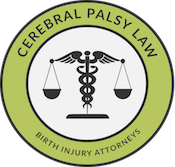What Is Placental Abruption?
Placental abruption is a labor and delivery emergency that occurs when the placenta separates from the inner wall of the uterus while the baby is still inside the womb. The placenta is the sac-like structure within the uterus where the baby develops during a pregnancy. Because it controls vital functions (such as nutrient and oxygen intake, gas exchange, and waste removal), any placental separation may result in severe fetal or neonatal injuries.
Did placental abruption result in your loved one’s cerebral palsy (CP) or permanent injury? If so, the experienced birth injury lawyers at Michigan Cerebral Palsy Attorneys can help. Call our legal and medical professionals toll-free at (888) 592-1857 or complete this online contact form for a free evaluation of your child’s cerebral palsy case and our attorneys will help you answer your questions.
What Are the Risk Factors for Placental Abruption?
Since there is no clear cause for placental abruption, physicians must pay close attention to certain risk factors that predispose pregnant women to the complication. Risk factors for placental abruption include the following:
- Women who gave birth before, particularly women with a previous placenta abruption
- Mothers older than 35 or younger than 20
- Hypertension (high blood pressure) or preeclampsia (pregnancy-induced hypertension): This is the most common cause of placental abruption, occurring in approximately 44% of cases.
- Abdomen trauma, which may not present signs or symptoms at first
- Sudden uterine decompression: Events like delivering the first child in a multiples birth, artificial rupture of the membranes (where the physician breaks the mother’s water), or premature rupture of the membranes (PROM).
- Accidental puncture of the placenta
- Chorioamnionitis (intra-amniotic infection)
- Abnormal uterine blood vessels
- Nutritional deficiency
- Pregnancy with a male baby
- Substance abuse and cigarette smoking
What Injuries Are Associated with Placental Abruption?
Damage from placental abruption depends on the location and size of the separation, how much connection to the placenta the baby retains, and how much time elapses between the point of abruption and delivery. Medical professionals must respond promptly to placental abruption in order to prevent the following associated injuries:
- Blood loss: Extreme bleeding results in severe blood loss to the mother and baby, and the baby may sustain lasting brain injuries such as cerebral palsy.
- Hypoxic-Ischemic Encephalopathy (HIE): HIE, a brain injury caused by oxygen deprivation to the brain, is a dangerous risk associated with placental abruption. Fetal distress from a lack of oxygen may cause lasting brain injuries with lifelong motor and developmental repercussions such as seizures and cerebral palsy.
What Are the Signs and Symptoms of Placental Abruption?
- Vaginal bleeding
- Back pain
- Fetal distress and abnormal fetal heart rate
- Hypertonic or tetanic uterine contractions, in which contractions are so rapid and strong that the uterine muscles are constantly contracting. This results in diminished oxygenated blood flow to the baby, and if signified by gradual but severe uterine pain.
- Faintness, dizziness, and shock (severely low maternal blood volume and pressure)
- Tender and hard uterus
How is Placental Abruption Diagnosed?
Diagnosis of placental abruption is largely based on observation, so physicians must communicate efficiently with the mother, closely assess her risk factors, and constantly check the fetal heart rate monitor. Ultrasound readings occasionally show placental abruption, so physicians should use these readings, but not depend on them for diagnosis.
How is Placental Abruption Treated?
Medical professionals should treat placental abruption with blood transfusions and intravenous fluid replacement procedures. If fetal distress signs are evident or bleeding is severe, an emergency C-section must occur.
Legal Aid for Placental Abruption Injury and Cerebral Palsy
Medical preparation and adeptness are crucial when placental abruption occurs. If your child has been diagnosed with cerebral palsy as a result of a mismanaged placental abruption incident, you and your child may be eligible for compensation. We encourage you to review the following examples of negligence and reflect back to your placental abruption:
- Failure to order and perform a timely emergency C-section
- Failure to properly treat placental abruption with blood transfusions or intravenous fluid replacement procedures
- Failure to evaluate and test for the risk factors, causes, signs, and symptoms of placental abruption
- Failure to inform the mother about the risks and alternative management options for placental abruption
If you experienced incidents like these during your delivery, please call our experienced attorneys at (888) 592-1857. Our lawyers will evaluate your case for free and answer any of your medical or legal questions.
